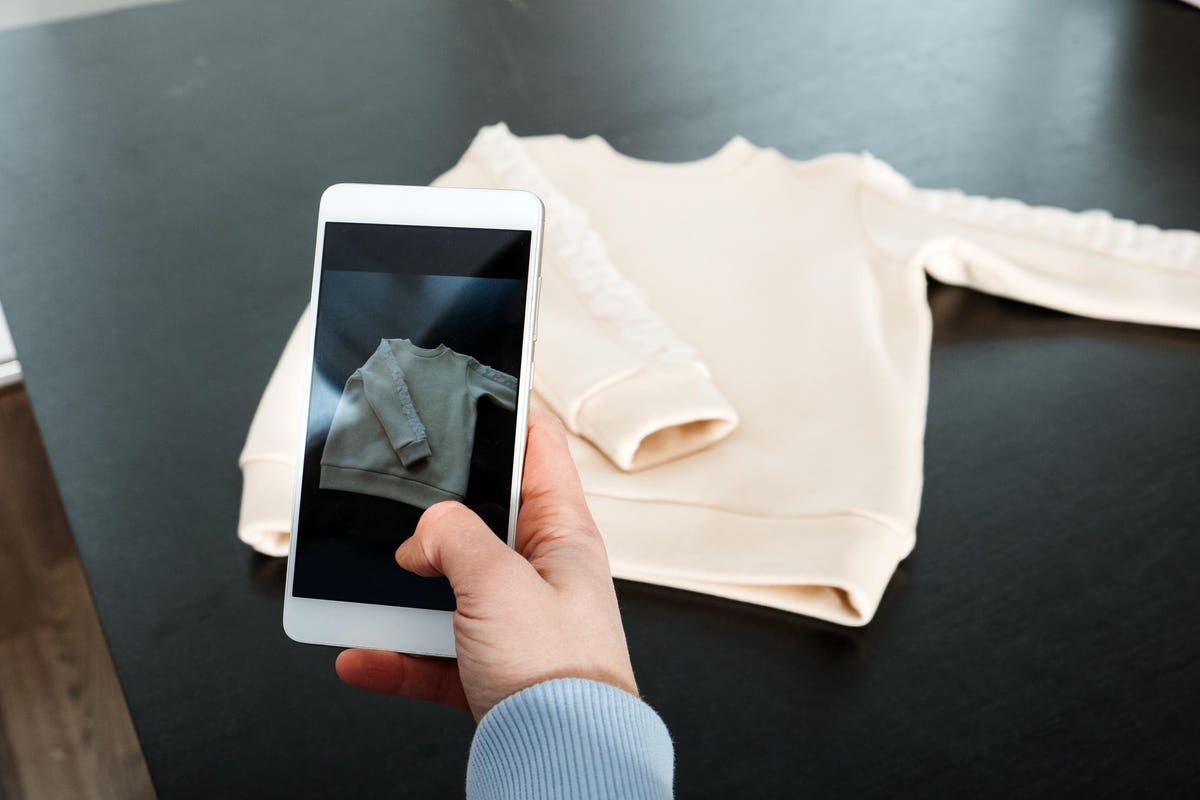Pangaia becomes the latest apparel company to launch its own resale platform, following the steps of dozens of businesses in the fashion space to do so over the past year. The difference being that with its Pangaia Rewear site, the brand is making it easier than ever for users to resell items thanks to its previous move to include QR codes on garments, giving each item a digital passport. Given the rapid rise of the second-hand fashion market and the increased scrutiny on brands’ environmental impact, many have decided to take control of their products’ second life by creating their own resale platform, competing with third-party reseller platforms such as Vestiaire Collective or ThredUP, amongst others.
Pangaia leverages digital product IDs to simplify the resale process
By launching its own resale platform, the brand confirms its commitment to the circular movement in the fashion space, a much needed initiative that gives products a longer lifespan and aims to lessen the industry’s incredibly polluting nature. This move comes as the secondhand market enjoyed +28% growth in 2022 while expecting to double by 2027, reaching $350 Billion globally according to ThredUP’s most recent resale report. More and more shoppers opt for second-hand purchases, driven both by price and sustainability factors. In fact, new shoppers are projected to account for most of the growing resale market in the U.S. with millenials and GenZ representing the majority of users.
Available in the U.K. and Ireland to begin with, Pangaia’s Rewear platform allows shoppers to buy and sell pre-loved Pangaia apparel through 3 simple steps: uploading Pangaia products for sale, downloading a prepaid shipping label and choosing to receive cash (80% of the resale price) or credit (100% of the resale price). The first step is however the one that often discourages users from selling items online as it can be a rather lengthy and tedious process. This is where the brand managed to simplify this pain point, making it much easier and quicker to list an item: thanks to QR codes present on every garment’s label – which were added a few years ago – sellers can simply scan an item’s QR code which will pre-fill all the necessary information (size, color and material) and suggest an estimated resale price range. By making it this seamless to list an item on its own branded platform, the brand makes it both more trustworthy and enjoyable to both sell and purchase second-hand items. The website also offers a pleasant browsing experience, with product pages with sizes and color availability looking as similar to a regular online shopping experience.
Archive as the partner of choice for brand-owned resale platforms
To launch its second-hand platform, Pangaia partnered with Archive, a technology company founded by Emily Gittins and Ryan Rowe that powers brands’ own resale platforms. Archive designs user-friendly and flexible operating systems for brands that offer a well-designed and seamless shopping experience for shoppers. Unlocking resale for fashion brands, it has already signed up companies such as Sandro, Ulla Johnson, The North Face, Oscar de la Renta and Ba&sh, amongst many others.
What makes Archive interesting is that, in addition to designing and delivering high-quality re-commerce shopping experiences, it empowers brands to think of resale as a genuinely virtuous and advantageous business initiative. With the right operational value chain in place, not only does owning their resale market allows brands to control their equity, it also helps acquire and engage with new cohorts of shoppers. It is also a great way to boost loyalty through store credits and represents an additional revenue stream that has a lower carbon footprint.
Seeing more brands take part in the second-hand movement is encouraging and is just the beginning of what will become the standard for what is currently one of the most polluting industries. Fashion brands have everything to gain from launching their own branded platform, especially as they start to truly consider this new model as part of their overall business rather than a mere sustainability initiative. There is still a long way to go before resale actually becomes profitable and attractive to companies, but brands like Pangaia are definitely going in the right direction as it designs clothing meant to last and now enables them to have multiple lives, which will help redefine the fashion industry for the better.
Read the full article here





